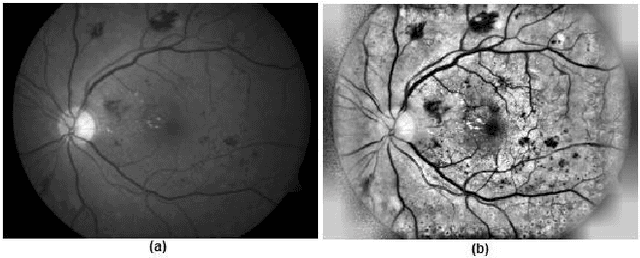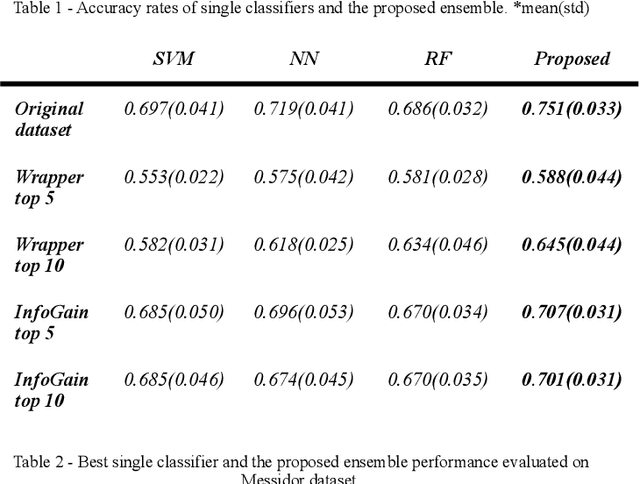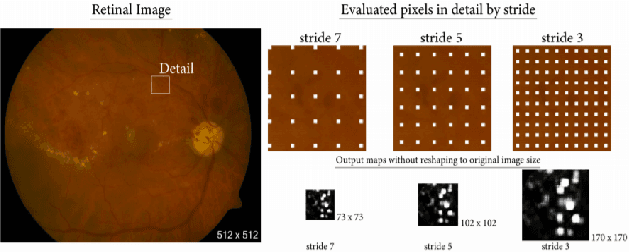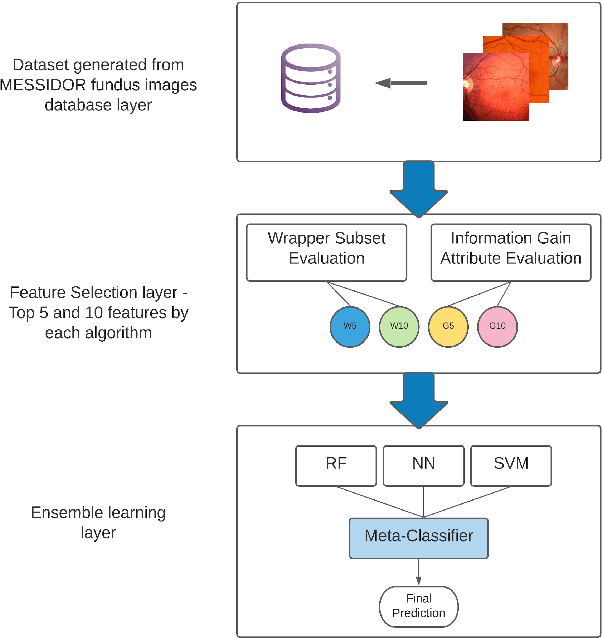Israa Odeh
Diabetic Retinopathy Detection using Ensemble Machine Learning
Jun 22, 2021



Abstract:Diabetic Retinopathy (DR) is among the worlds leading vision loss causes in diabetic patients. DR is a microvascular disease that affects the eye retina, which causes vessel blockage and therefore cuts the main source of nutrition for the retina tissues. Treatment for this visual disorder is most effective when it is detected in its earliest stages, as severe DR can result in irreversible blindness. Nonetheless, DR identification requires the expertise of Ophthalmologists which is often expensive and time-consuming. Therefore, automatic detection systems were introduced aiming to facilitate the identification process, making it available globally in a time and cost-efficient manner. However, due to the limited reliable datasets and medical records for this particular eye disease, the obtained predictions accuracies were relatively unsatisfying for eye specialists to rely on them as diagnostic systems. Thus, we explored an ensemble-based learning strategy, merging a substantial selection of well-known classification algorithms in one sophisticated diagnostic model. The proposed framework achieved the highest accuracy rates among all other common classification algorithms in the area. 4 subdatasets were generated to contain the top 5 and top 10 features of the Messidor dataset, selected by InfoGainEval. and WrapperSubsetEval., accuracies of 70.7% and 75.1% were achieved on the InfoGainEval. top 5 and original dataset respectively. The results imply the impressive performance of the subdataset, which significantly conduces to a less complex classification process
 Add to Chrome
Add to Chrome Add to Firefox
Add to Firefox Add to Edge
Add to Edge